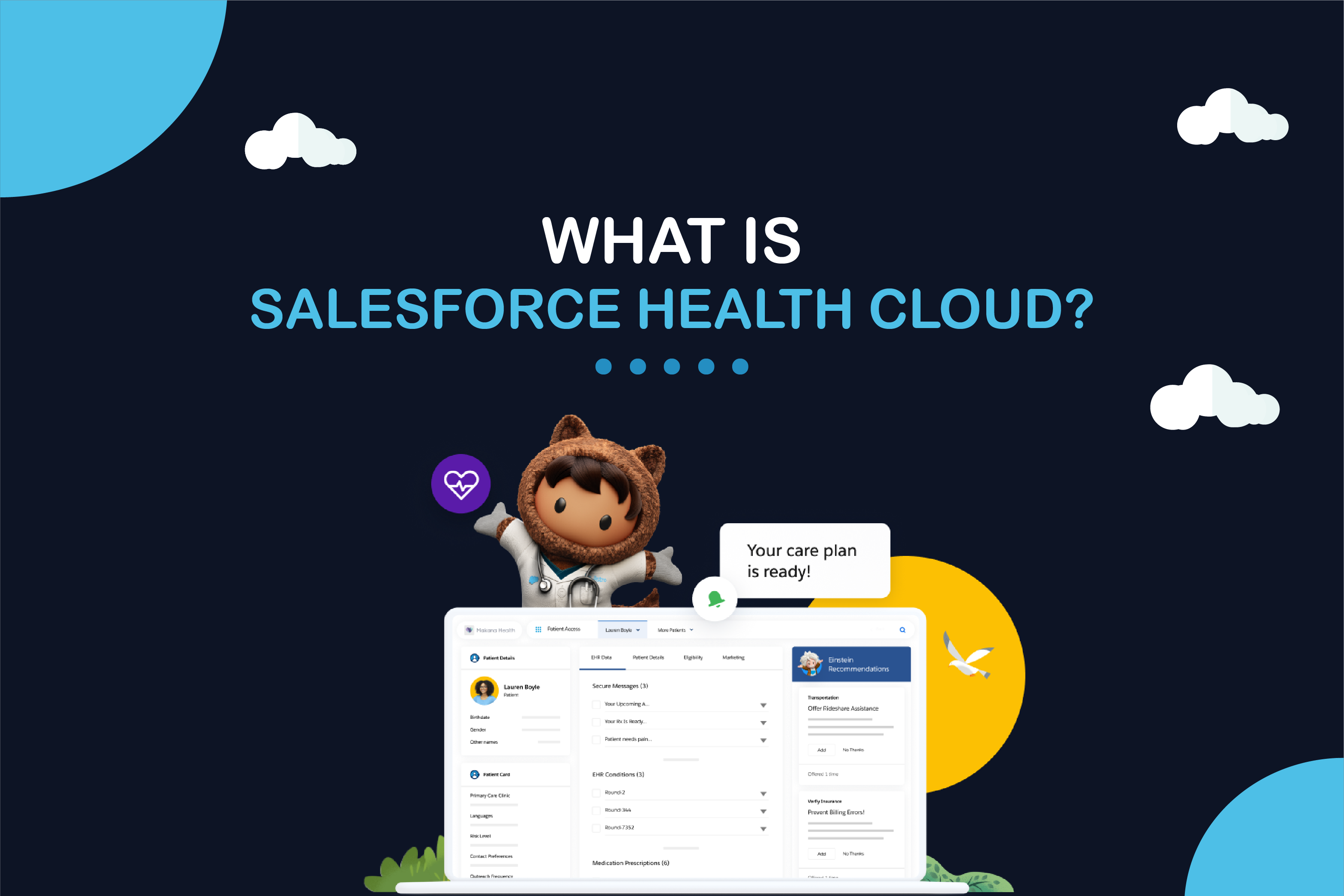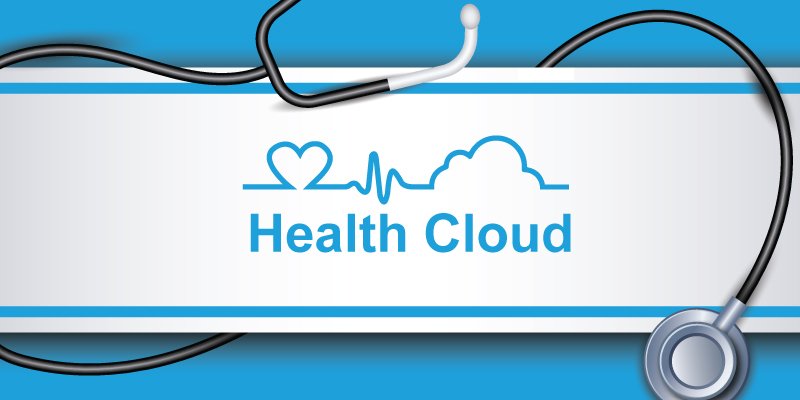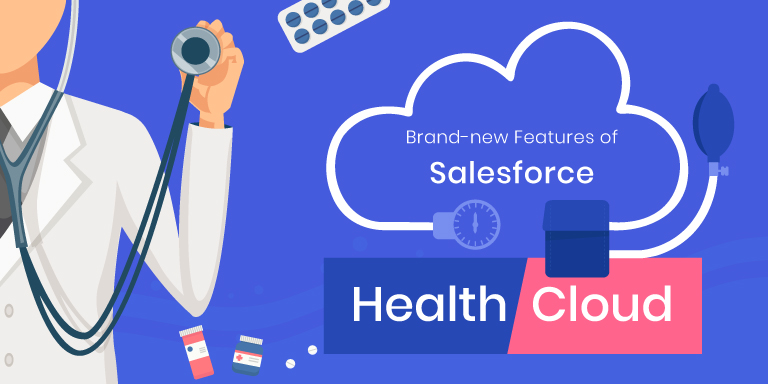Do you know Why Is Salesforce Health Cloud Required in 2023? Handling massive amounts of data, encouraging patient participation, and ensuring easy communication among healthcare practitioners are just some of the challenges that healthcare providers confront in the digital age. Salesforce Health Cloud is a powerful technology that can help medical practitioners overcome these challenges and provide better patient care. In this essay, we will cover Health Cloud, who needs it, and why you should consider adopting it.
Read More: Accessing Cloud Storage on Your Phone
Explore the Contents
What is a Health Cloud?

Health Cloud is an exclusive customer relationship management (CRM) system for healthcare providers. Because of Health Cloud’s single view of patient data, Salesforce for healthcare enables tracking patient contacts, generating treatment plans, and exchanging data with other healthcare providers.
With the support of Health Cloud, healthcare providers may manage patient data such as medical records, test results, and treatment plans. Health Cloud’s extensive analytics and reporting tools provide providers with insights into patient data, helping them to improve patient outcomes and make better decisions. Health Cloud’s patient interaction capabilities include appointment scheduling, telehealth, and personalized communications, to name a few.
Who needs Salesforce Health Cloud?

Health Cloud should be used by healthcare professionals who want to improve patient care, increase productivity, and streamline communication among different healthcare providers. Health Cloud could benefit the following healthcare organizations:
Hospitals and Clinics – Health Cloud provides hospitals and clinics with a unified view of patient data, allowing them to manage patient care more effectively. It also provides appointment scheduling and telehealth as patient engagement tools.
Health insurers can use the Health Cloud to coordinate care plans, track member interactions, and exchange data with healthcare experts. It also provides insurers with insight about member data, which improves member outcomes.
Pharmaceutical Companies – Health Cloud provides pharmaceutical companies with a full view of patient data, allowing them to track patient outcomes and communicate with healthcare experts. It also provides educational resources and tailored messages as patient engagement tools.
You May Also Like 5 Reasons That Make Project Management A Lucrative Career Choice
In conclusion, Salesforce Health Cloud is a powerful platform that may help healthcare organisations overcome the challenges of maintaining patient data, increasing patient engagement, and guaranteeing easy communication among multiple healthcare institutions. Whether you work for a hospital, clinic, health insurer, or pharmaceutical firm, the best Salesforce connectors, including Health Cloud, can help you deliver better patient care, increase efficiency, and improve patient outcomes. Hence, if you’re looking for a comprehensive solution for managing patient data and improving patient care, consider Salesforce Health Cloud.
When Health Cloud is Must-Have

Salesforce Health Cloud is required for healthcare providers who wish to enhance patient outcomes, increase efficiency, and streamline patient care operations. It provides healthcare workers with a unified view of patient data, allowing them to manage patient interactions, treatment planning, and information exchange. This makes it easier to track patient data and identify trends, allowing healthcare practitioners to make more informed decisions and improve patient outcomes.
- Health Cloud is beneficial for healthcare providers who want to
- improve patient engagement.
- provide patients with telehealth services, individualized communications, and educational materials
- keep individuals involved and informed about their health, resulting in improved health outcomes
- HIPAA and GDPR laws must be followed.
- provide strong security and compliance features, ensuring that patient data is always secured.
Salesforce Health Cloud is a must-have for healthcare professionals aiming to improve patient care, boost efficiency, and improve patient outcomes.
Benefits of Salesforce Health Cloud
Salesforce Health Cloud is a cutting-edge platform that is transforming the way healthcare firms manage patient care. The following are some of the benefits of using Salesforce Health Cloud:
Salesforce Health Cloud provides healthcare providers with a single, unified view of patient data, which they can use to organize treatment plans, track patient interactions, and exchange data with other healthcare professionals. Because of this unified perspective of the data, providers can make more informed decisions and provide better patient care.
Powerful Analytics and Reporting: The analytics and reporting solutions provided by Health Cloud provide providers with insights into patient data, allowing them to make educated decisions and improve patient outcomes. Providers may easily track patient data such as medical records, test results, and treatment plans using Health Cloud.
Patient Engagement: Health Cloud provides patient contact resources such as telehealth, appointment scheduling, and personalized communications. This encourages patient participation and keeps them informed about their health, both of which improve health outcomes.
Security and compliance: Health Cloud was designed to meet legal requirements such as HIPAA and GDPR. Because of Health Cloud’s stringent security and compliance safeguards, patient data is always secure.
Care Plans That Can Be Customized: Health Cloud provides care plans that can be tailored to suit patients’ requirements. This allows healthcare workers to provide more personalized care, which improves patient outcomes.
Natural communication: The Health Cloud enables providers to connect with other healthcare professionals in a way that allows them to exchange patient information and collaborate more effectively. This improves patient outcomes as well as care coordination.
Increased Efficiency: Health Cloud’s automation features streamline administrative tasks, providing healthcare professionals more time to focus on patient care. As a result, both output and efficiency rise.
Flexibility: The Health Cloud is a configurable platform that is adaptable enough to meet the needs of healthcare providers of all sizes and specialties. Due of its adaptability, providers can tailor Health Cloud to their specific needs.
You may also be interested in 7 Essential Electrical System Design Tips.
5 Use Cases of Salesforce Health Cloud

Salesforce Health Cloud is a versatile platform that may be used in a range of healthcare applications. These are five Salesforce Health Cloud use cases:
Patient Engagement: Telemedicine and personalized communications are just two of the ways Health Cloud may help patients get involved. This can help healthcare practitioners keep consumers interested in and knowledgeable about their health, which improves health outcomes.
Care Coordination: The Health Cloud allows providers to engage with other healthcare professionals in real time, allowing them to share patient data and work more efficiently. This improves patient outcomes as well as care coordination.
Chronic Disease Management: Health Cloud provides personalized treatment plans that may be tailored to each patient’s specific needs. This is especially useful in the management of chronic illnesses when personalized care regimens are essential.
Population Health Management: Health Cloud’s analytics and reporting features enable providers to monitor patient data, identify trends, and make informed decisions. Improved patient outcomes may result from physicians’ more effective population health management.
Clinical Trial Management: Health Cloud can manage clinical trials by providing a centralized platform for processing patient data, monitoring progress, and engaging with other healthcare professionals.
Read More: Cloud strategy & planning experts
Summing Up
Salesforce Health Cloud is a powerful platform that offers numerous benefits to healthcare providers. By providing physicians with a single view of patient data, robust analytics and reporting capabilities, and patient interaction tools, Health Cloud can help them provide better patient care, increase efficiency, and improve health outcomes. Because of its numerous applications, Health Cloud is a great resource for any healthcare organization looking to improve patient care and outcomes.



